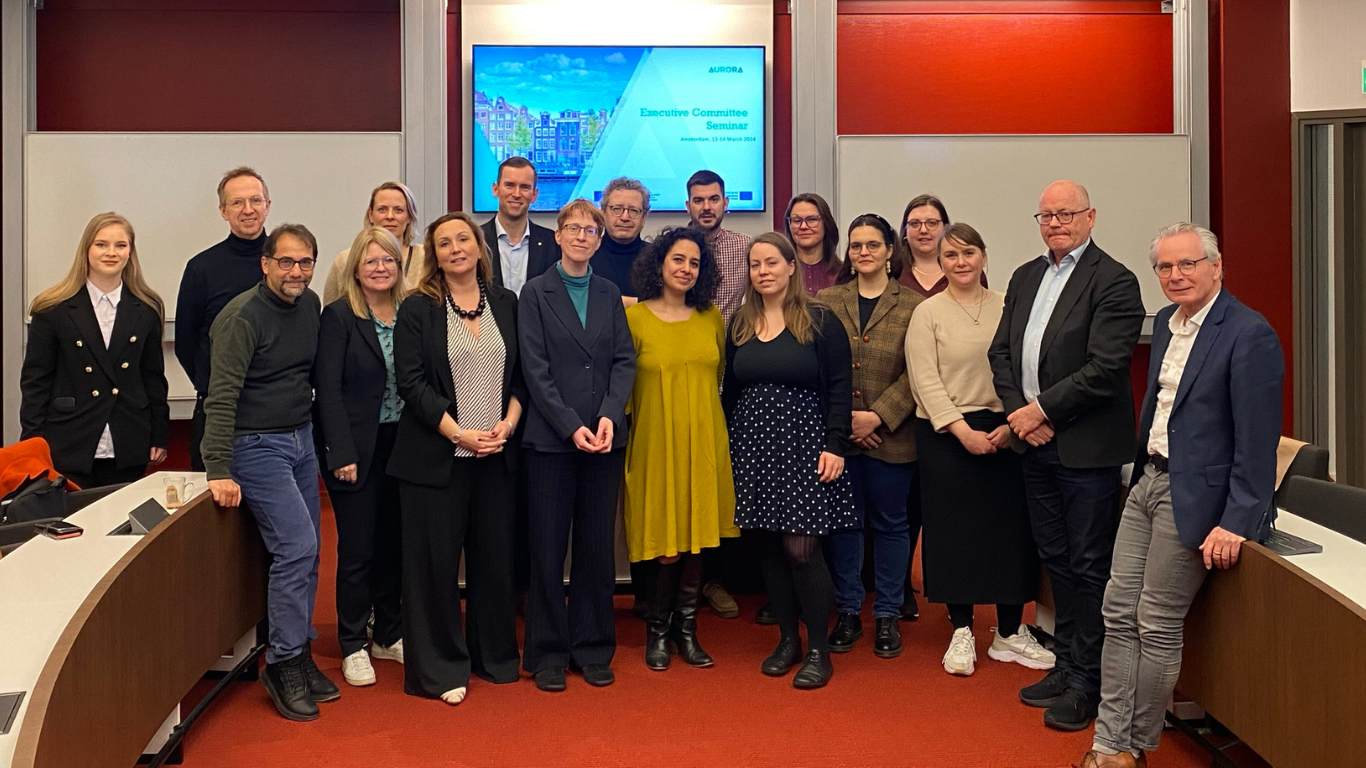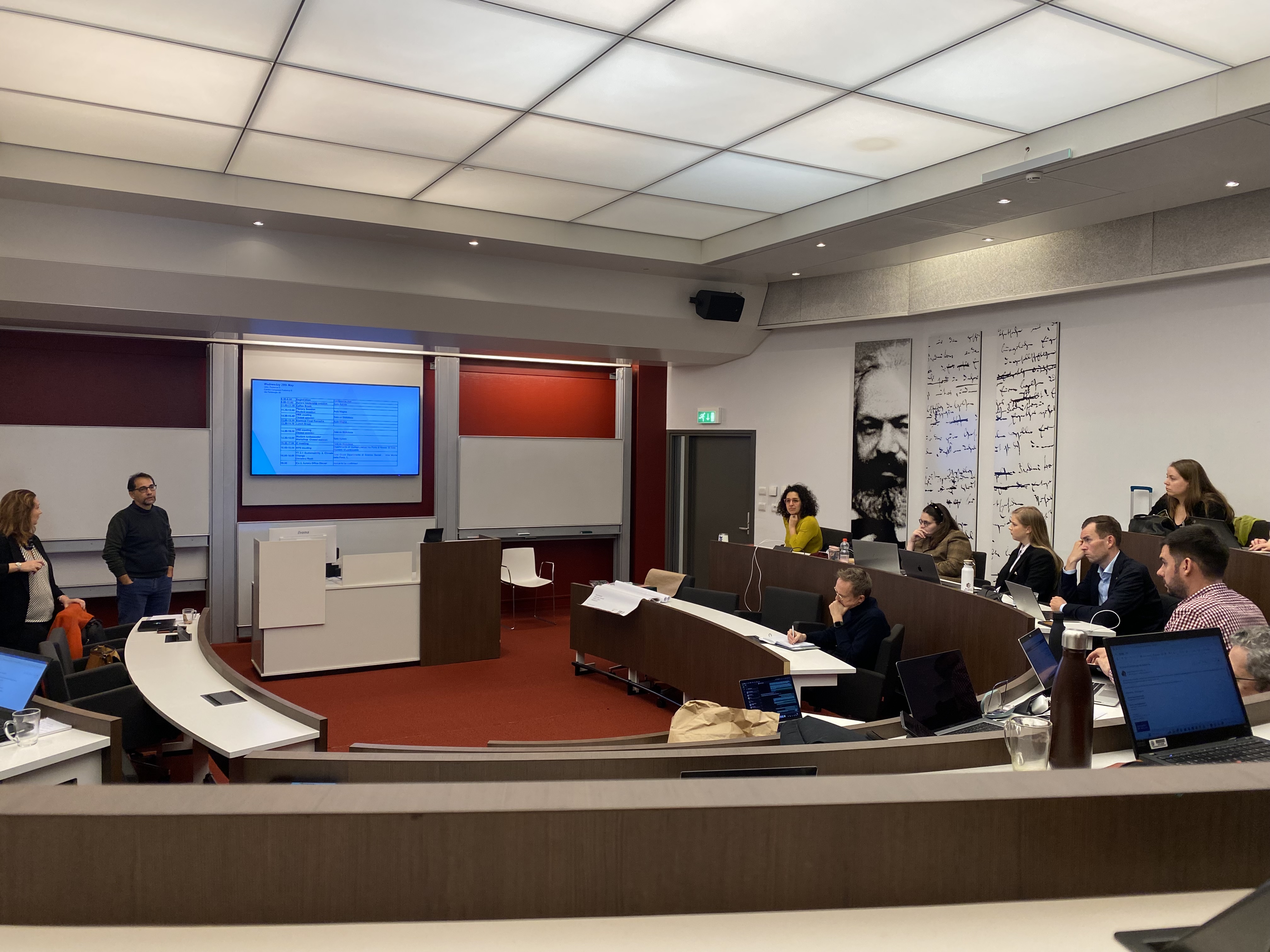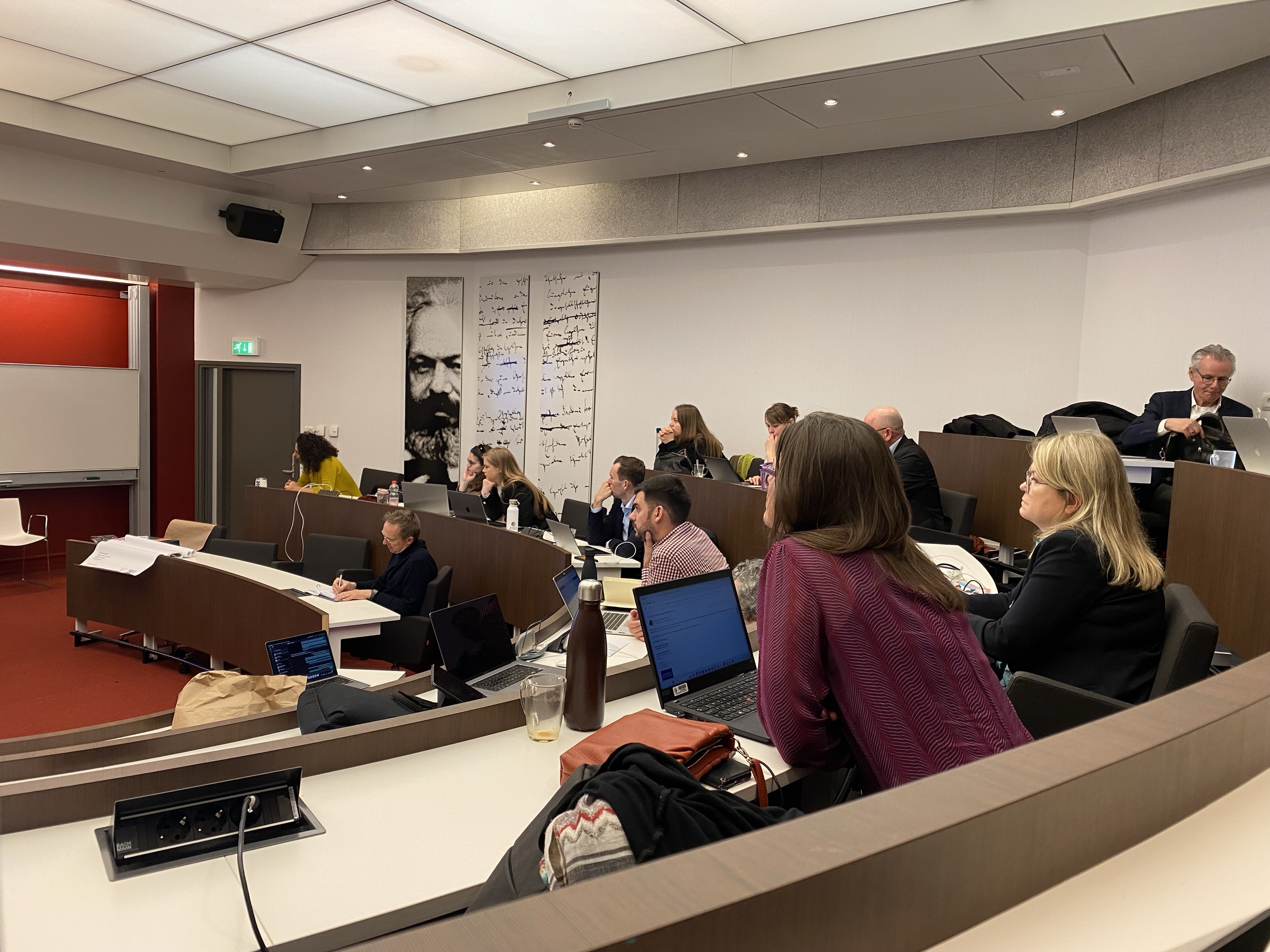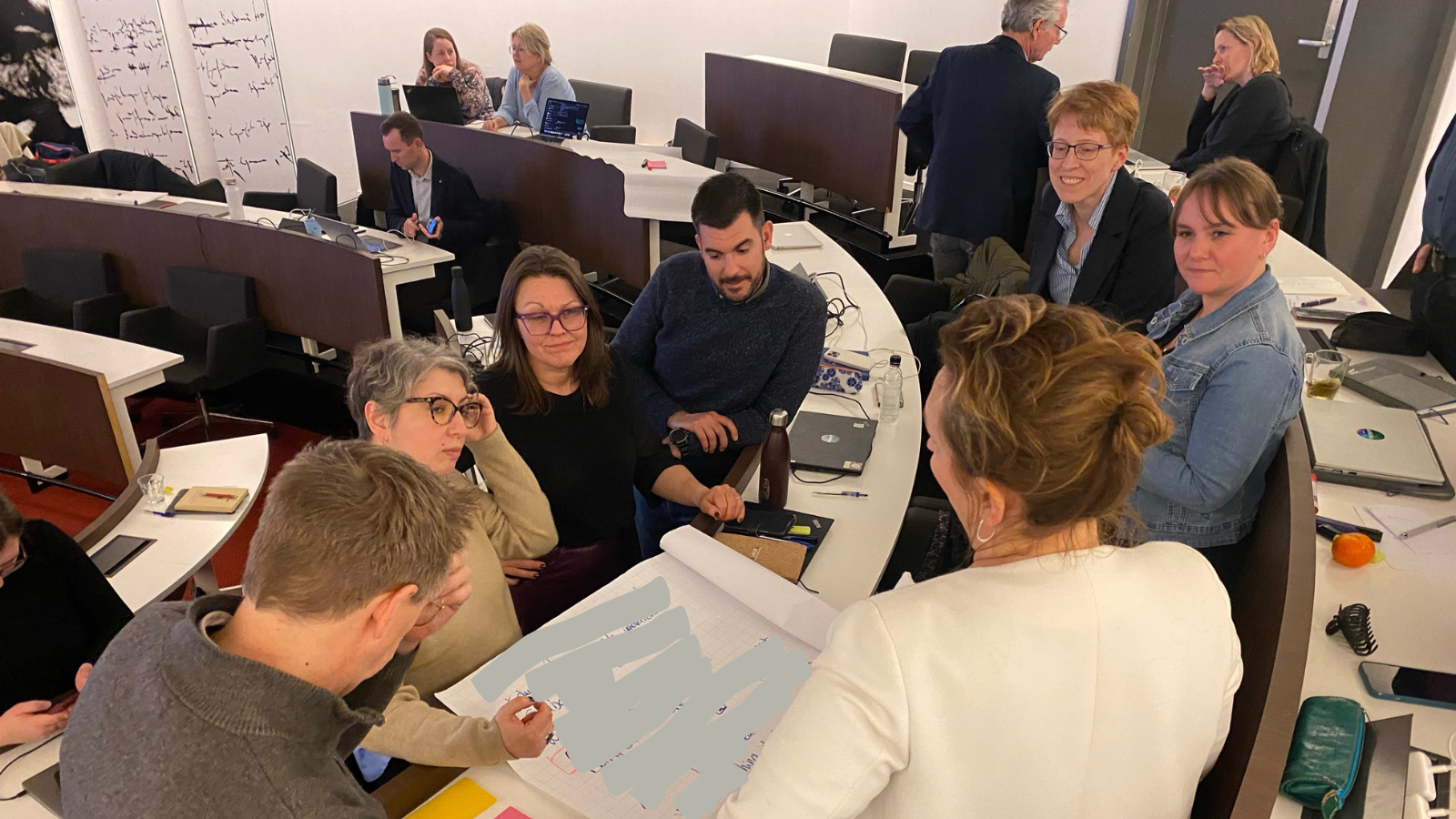Aurora Executive Committee Drives Key Actions for Aurora 2030

The Aurora Executive Committee convened recently at the Vrije Universiteit Amsterdam to discuss the strategy and critical actions moving forward in Aurora 2030, the second phase of the Aurora European university alliance.
Following the European Universities Coordinators’ Meeting in February this year, the Aurora central office organised a three-day seminar for its Executive Committee. The seminar gathered Institutional Coordinators and experts from nine Aurora member universities, as well as representatives from the central office leadership team. On the agenda were important topics marking the way forward for Aurora universities.
Managing Expectations for the Future
Recommendations from the DG EAC (Directorate-General for Education, Youth, Sport and Culture)
Sabine Sainte-Rose, Aurora Programme Director, shared key recommendations from the DG EAC. These include a focus on the evolution of a blueprint for a European Degree and the conclusions following six experimentation projects with 90 higher education institutions. She also highlighted the Council’s recommendation on the development of a quality assurance and recognition system for European university alliances that can be adapted to countries with a more institutional approach in this matter. The Executive Committee further exchanged on the Council’s advice to develop incentives for higher education institutions. Among these incentives is to create transnational initiatives to promote attractive and sustainable careers within this sector.
Expectations from the EACEA (European Education and Culture Executive Agency)
The expectations from the EACEA was one of the major takeaways from the European Coordinators’ Meeting in Brussels. Impact measurement is a key denominator of success for European university alliances. The methodology used and the metrics required to measure impact are non-negligible. Both must take into consideration the actual impact of alliances’ activities on the lives of students, staff and academics, beyond just mobility statistics. Markers of success integrate best practices for educational offers and the European inter-university campus experiences that demonstrate embeddedness, seamless mobility and recognition, all of which highlight the European values of inclusion and plurilingualism.
In addition, Sabine highlighted the rich and thought-provoking exchanges shared with colleagues from other European university alliances in the following areas:
- National developments and progress in higher education, such as the recognition of microcredentials offered through a course by a partner institution.
- The perception and acceptance of the joint European Degree by the ministries and institutions of higher education.
- The foundational elements that contribute to a better structure and visibility of our course offerings.


Structuring a European University Alliance
Clémentine Perdriau from the Aurora central office, delivered her findings from the study that she had carried out on the governance models in European universities. She underlined that there was no “one size fits all” model: each European university alliance has specificities that result in a diverse set of governance models.
Following this presentation, the Executive Committee discussed possible scenarios that could be developed as the governance structure for Aurora in this second phase between the years 2023 to 2027. They further established an initial base for a more long-term structure to ensure the sustainability of Aurora universities beyond the year 2027.
Moving Forward in Aurora 2030
The Executive Committee seminar continued with updates in the development of the following Aurora 2030 work packages (WP) and task teams (TT):
TT10.1 on Communication and Dissemination
Building a solid foundation is part of TT10.1 strategy for communication and dissemination in the Aurora 2030 project. Two fundamental elements supporting this objective are the development of the official Aurora Brand and Design Guidelines and the Institutional Trusted Local Communicator (TLC) role standardisation for communication representatives of each institution within Aurora. These were presented by Aniza Pourtauborde, Aurora Communications Manager and Anna Klas, Aurora Communications Officer, both of whom are part of the TT10.1 leadership team.


TT10.3 on Holistic and Strategic Approach for Impact
Ilyas Kenadid, Head of Strategic Projects at Université Paris-Est Créteil (UPEC) and TT10.3 Lead, reported on the different methodologies in managing, monitoring and measuring the impact of Aurora within the nine member institutions, their immediate stakeholders and the wider ecosystem.
TT6.1 on Aurora IT Development and Services
Thomas Baumgartner, Institutional Coordinator for Universität Innsbruck, spoke about the progress of the Aurora Virtual Campus, led by his university under Work Package 6 for Green and Digital Campus. He focused in particular on the Course Catalogue as a one-stop shop for all opportunities for students from Aurora universities. Topics covered consisted of the definition of an Aurora course, the digitalisation of credentials and the creation of a committee of transversal expertise in education, mobility and communications.
WP8 on Enabling Mobility and Exchange
Joan-Miquel Canals, Institutional Coordinator for Universität Rovira i Virgili (URV), shared initiatives encouraging international learning experiences among students, staff and academics. Through increased joint mobility opportunities between Aurora member institutions, demand is high for short-term courses.
TT5.2 on Academic Collaboration and Community Building
Martin Schwell, Institutional Coordinator for UPEC, outlined recent advances following the Call for Incentive Research Collaboration launched in mid-February this year. He spoke on developments in the creation of the Aurora Research Council (ARC) comprised of cross-institutional and cross-disciplinary representatives from all Aurora member universities.
Building on the foundation created during the first phase of Aurora, and leveraging on this experience, have enabled the Executive Committee and the Aurora central office to offer a holistic and visionary approach to the Aurora 2030 project.
About us
Aurora is a partnership of like-minded and closely collaborating research‑intensive European universities, who use their academic excellence to drive societal change.

Co-funded by the Erasmus+ Programme of the European Union

This project has received funding from the European Union´s Horizon 2020 research and innovation programme under grant agreement No 101035804
© Aurora European Universities | map by Leaflet, © OpenStreetMap contributors, © CARTO | admin | email template.